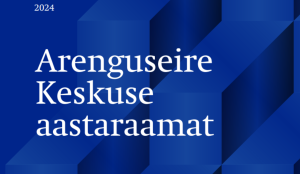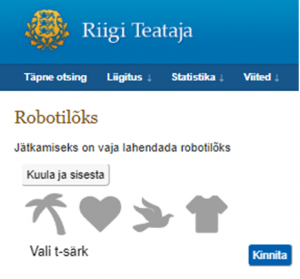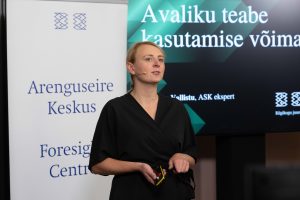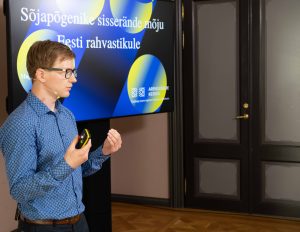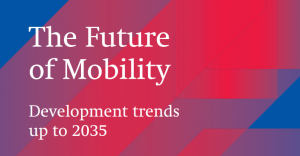The Foresight Centre notes in its newly published yearbook that better targeted preventive services would help to control the social costs that come with the aging population. However, more efficient use of people’s data requires legal clarity regarding the permissibility of data use.
News
The Foresight Centre conference ‘The personalised state in Estonia: future directions, risks and opportunities’ discussed the opportunities of personalisation of state services and benefits and focused on risks involved in using people’s data.
According to various assessments, the green transition will require funding equivalent to 2-4% of the national GDP annually for this and the next decade. In its yearbook published at the beginning of April, the Foresight Centre emphasises that the transition to an environmentally sustainable economic model will incur high costs for consumers and require supporting measures for successful implementation. However, the transition is predicted to bring benefits to the economy in the long term.
In order to enhance the competitiveness of Estonian economy and ensure sustainable development, we need to increase our investments into developing green technologies. Estonia’s weak point is that the state support for research and development in local businesses is inadequate and erratic, shows the Foresight Centre report “Green Transition Trends and Scenarios in Estonia”.
How can we make the data collected by the public sector more useful for both the Estonian society and every individual is the question asked at the Foresight Centre data conference “How could data serve us better?”.
What will the electricity consumption of households be like in the future and how to make it more sustainable and manageable? These were the questions asked at the Foresight Centre online seminar “How will expectations of future home life change the energy demand: implications for demand management”, held on 20 October.
Technical access restrictions, such as CAPCHAs and multiple download restrictions, are hindering the availability and refining of public information, shows the study “Trends in Access to Public Sector Information” that will be published by the Foresight Centre on Tuesday, 18 October.
According to the study “Trends in access to public sector information”, published by the Foresight Centre, the balance between the data protection requirements and the right to obtain public information is askew in Estonia. The implementation of the European Union General Data Protection Regulation (GDPR) has reduced the availability of data even further.
According to the Foresight Centre report “Long-term Impact of the Russo-Ukrainian War on Estonia. Population, Integration, Foreign Trade”, which was published today, Estonia must take into account that many war refugees will remain in Estonia for an indefinite time. The Centre drew up scenarios about 10,000, 30,000 and 60,000 war refugees remaining in Estonia.
The sustainability of Estonia’s transport system mostly depends on Tallinn and Harju County, which contribute nearly 50% of the total mileage of all the vehicles in Estonia, says the report of the Foresight Centre “The Future of Mobility. Development trends up to 2035“, which is now published in English.

 An independent think tank at the Riigikogu
An independent think tank at the Riigikogu 